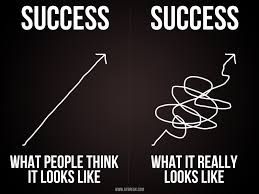Dreaming
Dream Big But Be Realistic For a Successful Life
Youthful dreams and plans are great but be mindful of the realities of adulthood
Posted February 25, 2013
Most of us grew up with big plans and dreams. Perhaps we hoped to become a professional athlete, a Nobel Prize winning scientist, a famous novelist, a movie star, or president of the United States. Typically, we dream very big when we are young. Why not? We can! 

Most of us grew up with big plans and dreams. Perhaps we hoped to become a professional athlete, a Nobel Prize winning scientist, a famous novelist, a movie star, or president of the United States. Typically, we dream very big when we are young. Why not? We can!
Yet, over time, most of these childhood fantasies and dreams are ultimately not realized. We get in better touch with our many limitations and other priorities often having to settle for something less than we had hoped for when we were young dreamers. Our culture (and often our families) certainly encourages us to have big ideas, grand plans, and pursue success at the highest level. Sadly, parents sometimes saddle their unfulfilled dreams onto their children who then do the same to their children leaving a long chain of potential frustration and unhappiness. Sometimes we actually achieve these lofty goals and even more. Yet mostly we don’t.

So many people live with the disappointment that they “could have been a contender.” I often find it fascinating to ask adults what their dreams were when they were young and what they thought success in life might look like for them. Furthermore, we tend to maintain the very American perspective that we can all achieve whatever we wish for in life if only we work hard enough at our goals. All is possible with sweat, grit, and determination.

While it is important to have high standards and lofty goals they need to be realistic and doable to avoid disappointment. Otherwise, we often wallow in our failures and remain disappointed that our youthful dreams were never realized. We hang our heads and feel frustrated with life. We disappont ourselves and those around us too.
What is success anyway? What do you think might be measures of success for you? Sometimes I find that many of my clinical patients (as well as friends and colleagues) take many of their successes for granted. Many often habituate to their lifestyles and often forget about how good they have it in life. I often joke that if you are alive when you wake up in the morning, can get yourself vertical, and you can have something to eat, a good cup of coffee, and have a job to go to then you have nothing to complain about in life. As the saying goes, “it’s all good.”

Media also constantly presents to us those who have reached remarkable successes. Upward social comparison makes us feel that we are losers and unsuccessful when we compare our lives to the rich, famous, and successful highlighted so often in the media.
If you reflect on what success means in your life you may find that simple things like adequate food, housing, love, meaningful work, and so forth might all combine to make for a successful life and lifestyle. A life with love and meaning is a successful life.
You certainly don’t need to achieve the perhaps unrealistic goals of your youth to be successful. Consider embracing the simple and basic joys of life for a successful life. And don’t take for granted the many simple things that you enjoy that many in the world may only dream about achieving.
So, what do you think?



